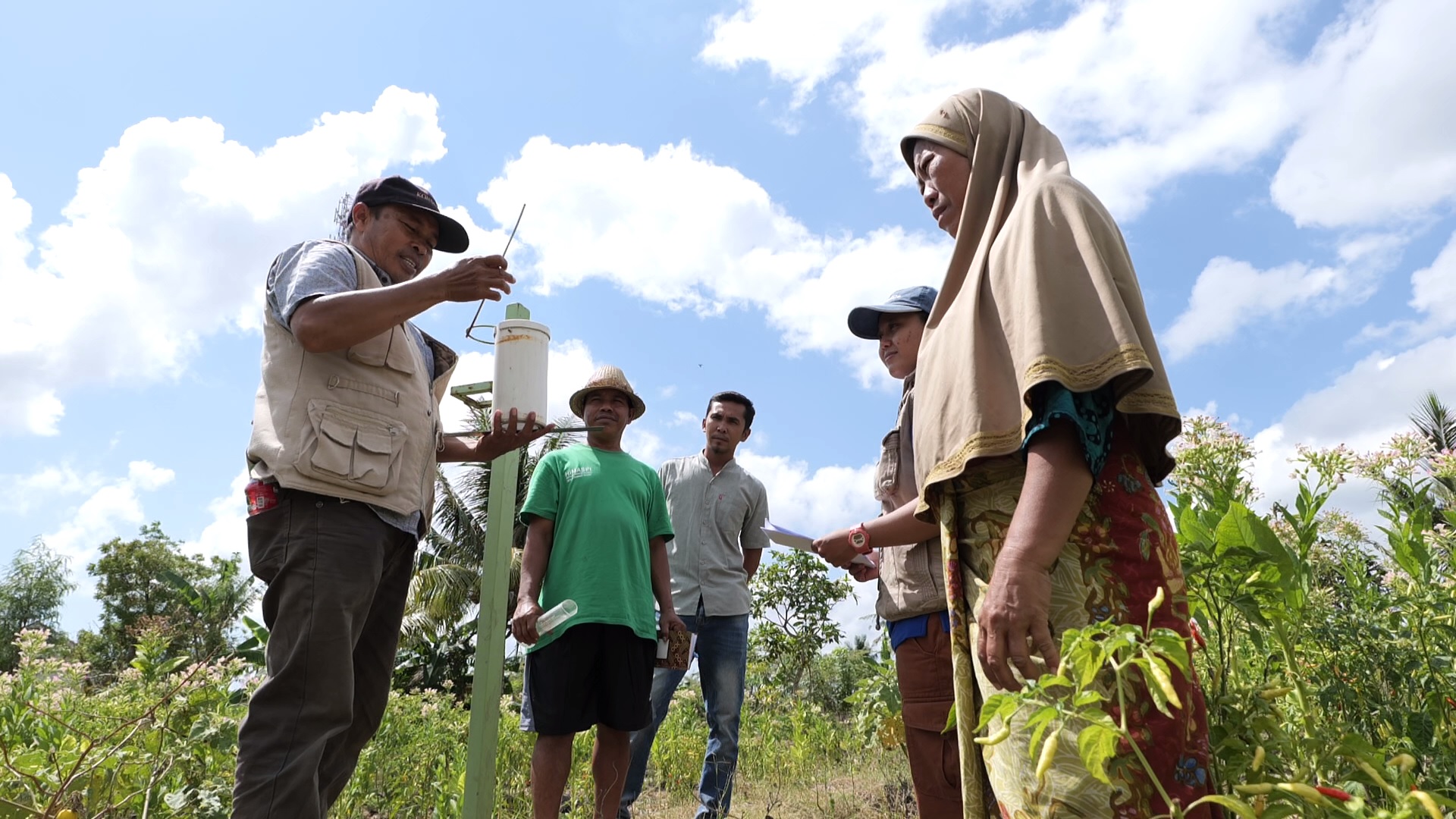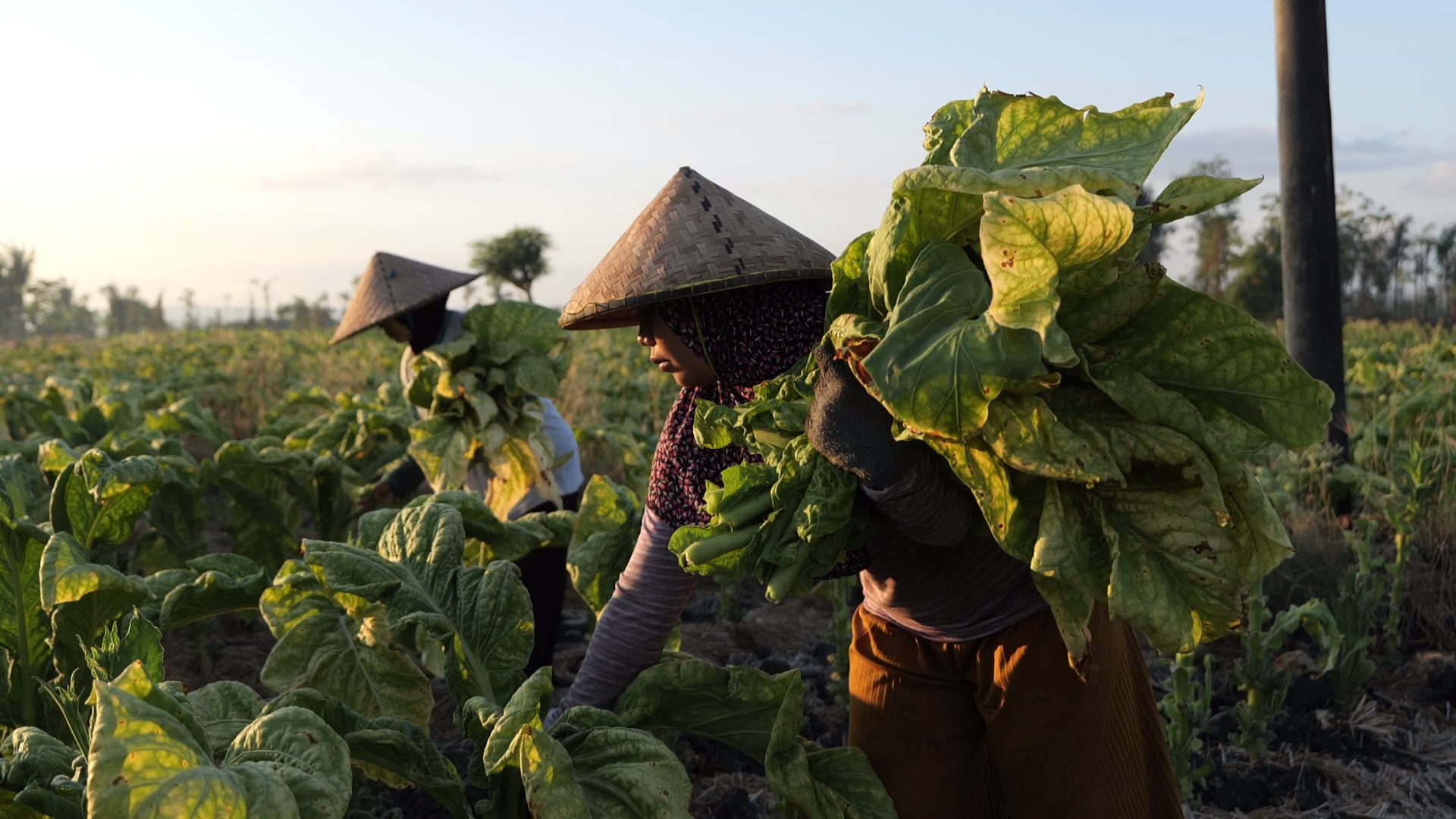Putting women at the centre of locally-led adaptation
Islamic Relief Indonesia and KONSEPSI, our local partner organisation, are increasing women’s participation in locally-led adaptation – especially in decision making around agriculture and fishing in Lombok.
One of our initiatives is a gender-based climate field school. It works with farmers who rely on rainfall, as well as salt farmers and lobster fisheries. All are especially vulnerable to the impacts of climate change.
Rain-fed farming is increasingly failing as the tumbuk cannot predict the erratic weather pattern. Salt farmers, who need to mature the salt during the dry season, are being caught out by unpredictable rain. And as sea temperatures rise, causing disease and death in lobsters, lobster fishers are also struggling.
Through the field school, we are training them in community-based adaption methods. These include:
- measuring daily rainfall
- adjusting crops plantations based on quarterly climate predictions
- creating organic feed that promotes a healthier seawater environment, irrespective of changing temperatures
- producing prism houses that enable salt production in all weather.
These interventions have achieved a significant increase in the productivity of lobster fishing, rain-fed farming, and salt cultivation.
Importantly, the field school puts women at the heart of adaptation methods by increasing women’s participation in decision making around community based adaptation. This is increasing the ability of women to actively participate in livelihood activities, and to share in household decision making and controlling family resources.
“If we want to address the impact of climate change on our children, we need to educate the women first,” pointed out Dr Sitti Hilyana, a gender expert at the University of Mataram. “That is why increasing the knowledge and awareness of climate change in women is very effective (at increasing their participation in decision making).”
Creating new pathways for engagement on locally-led adaptation
Islamic Relief is committed to bringing the voices and experiences of vulnerable communities to local, national and global platforms for dialogue.
Last month Islamic Relief Indonesia and KONSEPSI hosted a hosted a virtual Road to COP26 event, encouraging local initiates for inclusive low-carbon development and climate resilience.
With the Governor of West Nusa Tangerra joined as keynote speaker by officials from the Ministry of Development and National Planning Board, the national event produced recommendations and commitments.
Those discussions will be taken forward at the pivotal COP26 climate summit in Glasgow, Scotland. Hosting an event on the 11 November, Islamic Relief Indonesia will explore the nexus between gender-based climate adaptation and localisation in Indonesia.
Communities on the front line of climate change have a wealth of experience in adapting to rapidly changing climate. It is therefore essential that we listen and empower local stakeholders to contribute to decisions that will directly impact their lives and livelihoods. We also must work with local communities in integrating scientific climate data into local adaptation practices like tumbuk to ensure that these communities continue to effectively adapt to the impacts of climate change.
*Name changed to protect his identity

